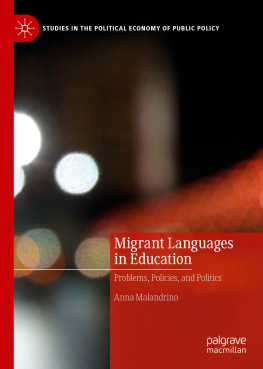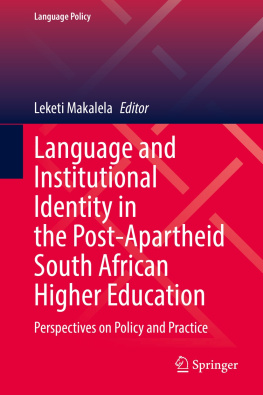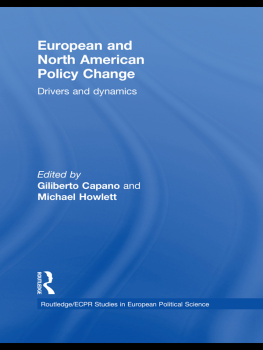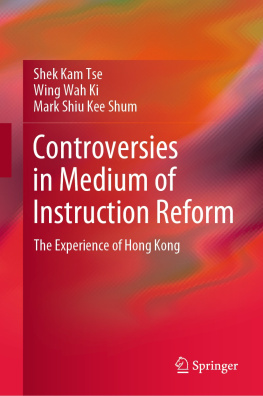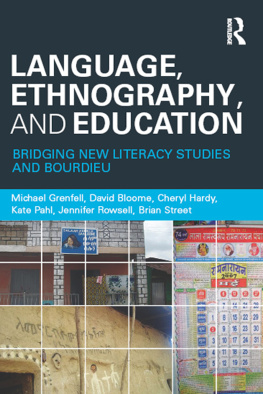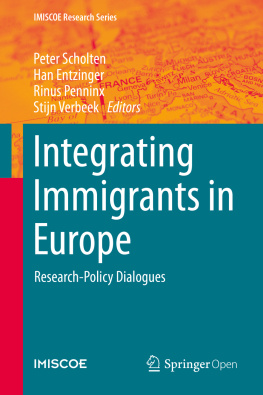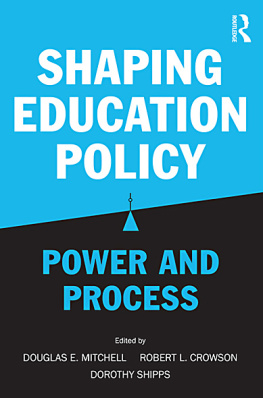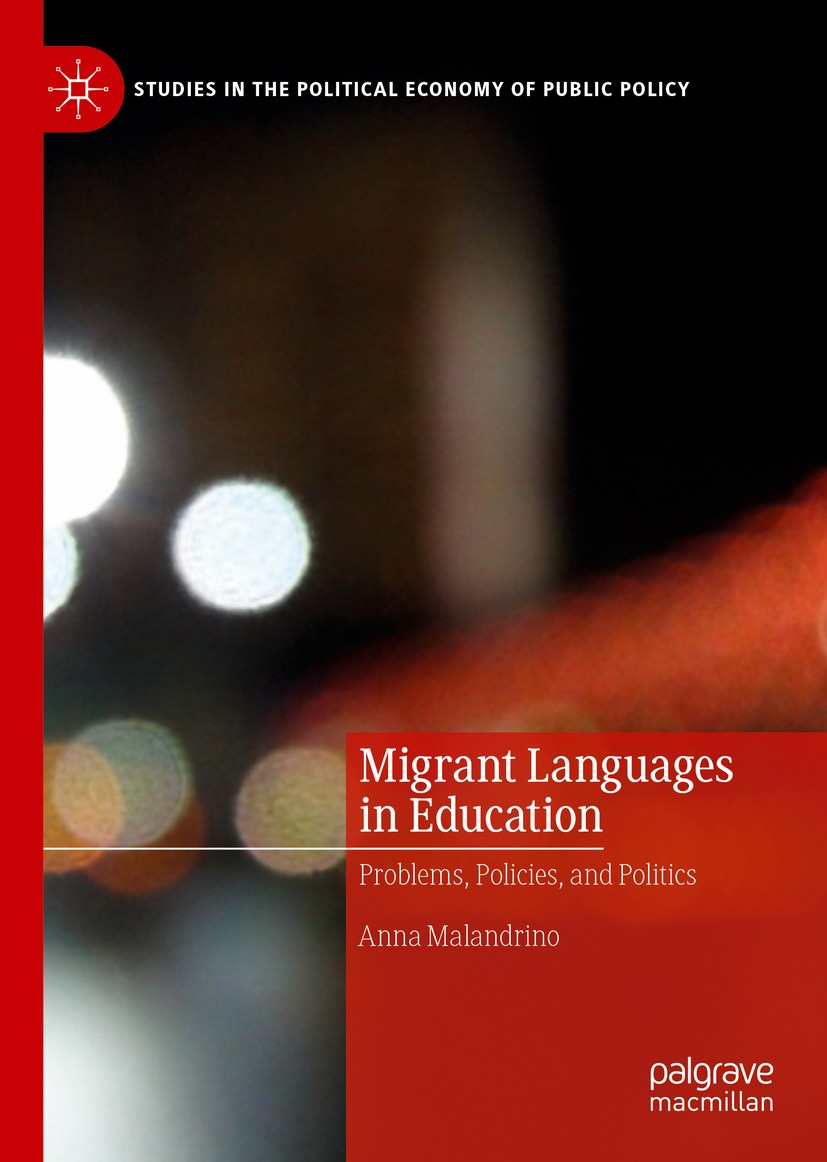Studies in the Political Economy of Public Policy
Series Editors
Toby Carroll
City University of Hong Kong, Hong Kong, Hong Kong
Paul Cammack
University of Manchester, Manchester, UK
Kelly Gerard
The University of Western Australia, School of Social Sciences, Crawley, WA, Australia
Darryl S. L. Jarvis
The Education University of Hong Kong, Hong Kong, Hong Kong
Studies in the Political Economy of Public Policy presents cutting edge, innovative research on the origins and impacts of public policy. Going beyond mainstream public policy debates, the series encourages heterodox and heterogeneous studies of sites of contestation, conflict and cooperation that explore policy processes and their consequences at the local, national, regional or global levels. Fundamentally pluralist in nature, the series is designed to provide high quality original research of both a theoretical and empirical nature that supports a global network of scholars exploring the implications of policy on society. The series is supported by a diverse international advisory board drawn from Asia, Europe, Australia, and North America, and welcomes manuscript submissions from scholars in the global South and North that pioneer new understandings of public policy.
International Advisory Board:
Alberto Asquer, SOAS, University of London, UK
Jacqui Baker, Murdoch University, Australia
Caner Bakir, Ko University, Turkey
Shaun Breslin, University of Warwick, UK
Sydney Calkin, University of Durham, UK
Paul Cammack, University of Manchester, UK
Giliberto Capano, Bologna University, Italy
Paul Chambers, Naresuan University, Thailand
Tom Chodor, Monash University, Australia
Susan Engel, University of Wollongong, Australia
Paul K. Gellert, University of Tennessee, USA
Barry Gills, University of Helsinki, Finland
Ruben Gonzalez-Vicente, Leiden University, Netherlands
Penny Griffin, University of New South Wales, Australia
Samanthi Gunawardana , Monash University, Australia
Pascale Hatcher, University of Canterbury, New Zealand
Heng Yee Kuang, University of Tokyo, Japan
Kevin Hewison, University of North Carolina, Chapel Hill, USA
Wil Hout, Institute of Social Studies, Erasmus University, Netherlands
Michael Howlett, Simon Fraser University, Canada
Elizabeth Humphrys, University of Technology Sydney, Australia
Kanishka Jayasuriya, Murdoch University, Australia
Melissa Johnston, Monash University, Australia
Zhang Jun, City University of Hong Kong, SAR, China
Sung-Young Kim, Macquarie University, Australia
Mustafa Kutlay, City University of London, UK
Max Lane, Victoria University, Australia
Tim Legrand, University of Adelaide, Australia
Kun-chin Lin, University of Cambridge, UK
Jorg Nowak, ERC Postdoctoral Researcher
Ziya ni, Ko University, Turkey
Susan Park, University of Sydney, Australia
Michael Peters, University of New South Wales, Australia
Adrienne Roberts, University of Manchester, UK
Steven Rolf, University of Sussex, UK
Stuart Shields, University of Manchester, UK
Richard Stubbs, McMaster University, Canada
Maria Tanyag, Australian National University, Australia
Silke Trommer, University of Manchester, UK
Heloise Weber, University of Queensland, Australia
Philippe Zittoun, Science Po, Grenoble, France
All books in the series are subject to Palgraves rigorous peer review process. For more information, or to submit a proposal, please contact one of the series editors: Toby Carroll (tcarroll@cityu.edu.hk), Paul Cammack (pcammack01@gmail.com), Kelly Gerard (kelly.gerard@uwa.edu.au), Darryl Jarvis (DJarvis@hbku.edu.qa).
Anna Malandrino
Department of Political and Social Sciences, University of Bologna, Bologna, Italy
ISSN 2524-7441 e-ISSN 2524-745X
Studies in the Political Economy of Public Policy
ISBN 978-3-031-15793-6 e-ISBN 978-3-031-15794-3
https://doi.org/10.1007/978-3-031-15794-3
The Editor(s) (if applicable) and The Author(s), under exclusive license to Springer Nature Switzerland AG 2023
This work is subject to copyright. All rights are solely and exclusively licensed by the Publisher, whether the whole or part of the material is concerned, specifically the rights of translation, reprinting, reuse of illustrations, recitation, broadcasting, reproduction on microfilms or in any other physical way, and transmission or information storage and retrieval, electronic adaptation, computer software, or by similar or dissimilar methodology now known or hereafter developed.
The use of general descriptive names, registered names, trademarks, service marks, etc. in this publication does not imply, even in the absence of a specific statement, that such names are exempt from the relevant protective laws and regulations and therefore free for general use.
The publisher, the authors, and the editors are safe to assume that the advice and information in this book are believed to be true and accurate at the date of publication. Neither the publisher nor the authors or the editors give a warranty, expressed or implied, with respect to the material contained herein or for any errors or omissions that may have been made. The publisher remains neutral with regard to jurisdictional claims in published maps and institutional affiliations.
This Palgrave Macmillan imprint is published by the registered company Springer Nature Switzerland AG
The registered company address is: Gewerbestrasse 11, 6330 Cham, Switzerland

